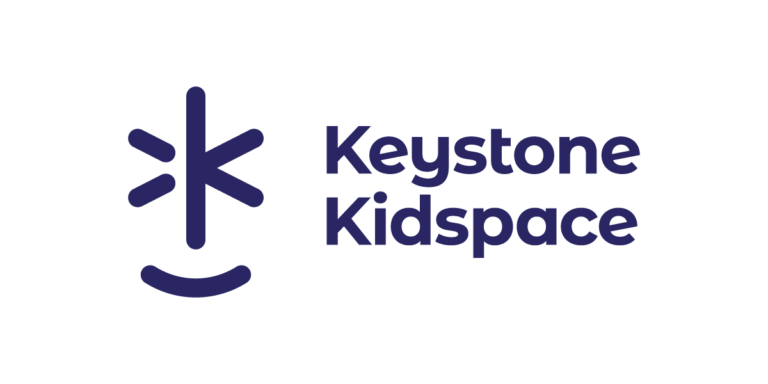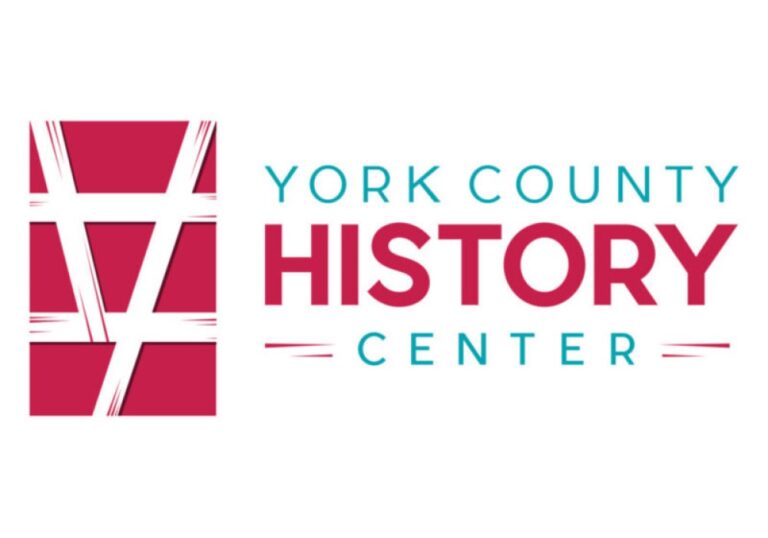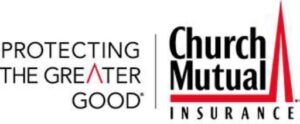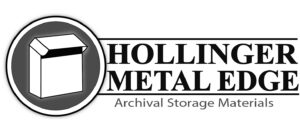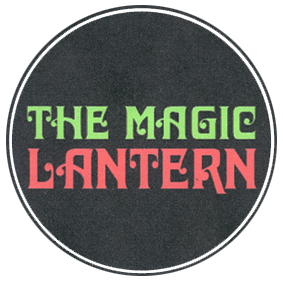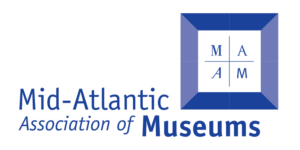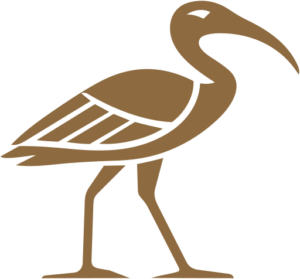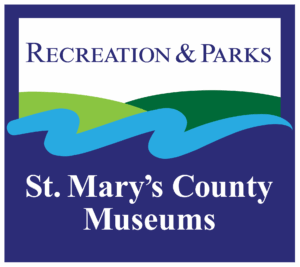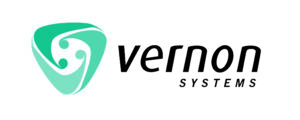12:00 to 3:30 pm
Registration Table Open
Hotel Lobby
Silent Auction Open
Wellspan Ballroom
1:00 to 3:30 pm
Resource Hall Open
Go to the Sponsors and Exhibitors tab on this page to see a list of our 2026 supporters.
Mezzanine
1:00 to 2:30 pm
Sessions
New Museum in a Changing World: Breaking Ground at the Patterson House and Gardens
Lauren Canty, Candi Claggett, and Lindsay Hollister
The Patterson House and Gardens, located on Jefferson Patterson Park and Museum in St. Leonard, Maryland, is part of an environment that is experiencing great change. The re-opening of the historic house and landscape after six years of renovations has put it in a unique position to address shifts in demographics, technology, land use, and climate in Southern Maryland. The JPPM Curator, Patterson Educator, and Horticulturist worked with JPPM staff and volunteers to create a mission-driven museum space that seeks to break barriers in what is expected in collections, interpretation, and horticulture to serve the needs of visitors in a changing world.
Wellspan Ballroom
You Are Not Alone: Building and Sustaining a Regional Disaster Response and Recovery Team with the East Broad Top Archives and Special Collections
Julie Fether and Scarlett Wirt
Would you know what to do if a natural disaster hit your small museum? Or do you know what to do, but worry that limited resources make it impossible to prepare? This session will provide a case study and workshop on how the East Broad Top Archives and Special Collections partnered with other local museums along the railroad’s historic route to create a regional disaster response team.
Pullo Room
2:30 to 4:00 pm
Session
Preventing (Climate) Collections Catastrophes and Other Chaos
Kayla Doyle, Hannah Gaston, Katherine Quigley, and Michaela Zoquier
Liberty Hall Museum & Arboretum faced a fair number of collections catastrophes in 2025: a kid on a field trip kicking a hole in a wall, an AC unit flooding a rare book room, and a visitor deciding to sit in (and subsequently break) a nineteenth-century chair with presidential provenance. As a museum that only recently began prioritizing collections safety by hiring its first full-time Curators of Collections and Archives, Liberty Hall’s workshop facilitators will share how the museum has prioritized mitigating future chaos and how collections, education, and other departments can collaborate to protect objects while also making them usable resources for the public. Participants will then be invited to share their own catastrophes (or near-misses) with other attendees before reconvening as a whole group to share and learn together to create actionable and practical plans for developing a safer climate for all their collections (both historic and touch objects) while preventing catastrophes and chaos with limited resources and a small-museum budget.
Wellspan Ballroom
Independent Museum Professionals Meet-Up
Join Angie Barry for an Independent Museum Professionals meet-up! Complimentary hot and cold beverages provided!
North/South Meeting Room
Maryland Meet-Up
Marylanders (and all those interested) are invited to an informal meeting of the Maryland Museums Association to discuss federal and state funding for museums in Maryland as well as hot topics in the profession with plenty of time for open discussion. No RSVP needed, and please share this invitation with your colleagues in the York-area and/or attending the SMA conference. Questions can be directed to the Maryland Museums Association.
Stewart Company Room
4:00 to 6:00 pm
Opening Night Reception at the York County History Center
Included with full and Monday registrations
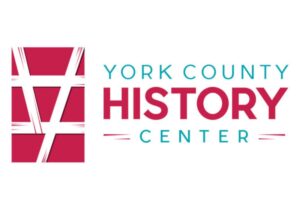
Kick off the 42nd Small Museum Association Conference with an opening reception at the new York County History Center, where more than 90,000 artifacts bring 300 years of history to life as you mingle with fellow attendees and explore the stories of York County.
121 N Pershing Avenue
Directions from conference hotel (9 min walk or 3 min drive)
Parking:
- YCHC lot: located behind the museum and accessible via Pershing Avenue
- Across Pershing Ave in the York County Rail Trail or Lafayette Plaza lots
- Susquehanna Commerce Center: 221 W Philadelphia Street
6:00 to 9:00 pm
Eat & Engage
On your own
Meet up with new friends or reunite with old ones at one of downtown York’s many restaurants, including the Davidson Lobby Bar and Restaurant at the conference hotel.
9:00 to 10:30 pm
Trivia
Wellspan Ballroom
8:00 am to 3:30 pm
Registration Table Open
Hotel Lobby
Resource Hall Open
Go to the Sponsors and Exhibitors tab on this page to see a list of our 2026 supporters.
Mezzanine
Silent Auction Open
Wellspan Ballroom
Take the elevator to B1
8:00 to 9:30 am
Breakfast
Included with full and Tuesday registrations
Wellspan Ballroom
Take the elevator to B1
9:00 to 10:00 am
Plenary: Ashley Witherspoon
Museum professionals dedicate themselves to preserving culture and creating meaningful experiences, yet the demands of this work often come with hidden costs. Burnout, financial stress, and the emotional labor of caring for communities can weigh heavily on individuals and organizations alike. These challenges are compounded when traditional metrics like budgets, visitor counts, and job titles fail to fully reflect the depth and significance of what museum workers contribute. When museum professionals and the organizations we work for are not willing or able to truly honor our impact, our wellness and resilience can suffer.
This talk will explore why conventional metrics often fall short as measurements of value, and how reframing impact through cultural, community, personal, and relational lenses can help professionals better honor the intangible yet profound effects of our work. Recognizing these dimensions not only validates the efforts of museum professionals but also strengthens resilience and well-being across the field.
Participants will leave with practical strategies and affirmations to help them see their contributions as invaluable—not just in numbers, but in meaning. Together, we will celebrate the power of museums to transform lives and communities, and equip attendees with tools to advocate for themselves and their work.
Wellspan Ballroom
Take the elevator to B1
10:15 to 11:15 am
Sessions
Creating an ICE Interaction Policy for Your Institution
Meghan Mann
Would you or your volunteers know how to respond if ICE came to your museum? This presentation, specifically created with small museums in mind, offers a practical framework for developing and implementing a policy for interacting with ICE agents, even with limited in-house legal or HR capacity. Using publicly available legal resources, and emphasizing low-cost, realistic steps, we’ll discuss how to identify a valid warrant, review your rights when dealing with ICE agents, and consider the decision points involved in tailoring a provided sample policy to your institution. You’ll walk away with resources for training your colleagues and a road map towards having a draft policy by your next board meeting.
Wellspan Ballroom
Take the elevator to B1
Practical Fundraising Tips for Small Museums
Nora Venezky
Raising funds for a small museum can be challenging, but with the right approach, even limited resources can make a big impact. This session will provide you with practical tips and tricks to simplify fundraising, introduce free or low-cost tools to enhance your efforts, and offer actionable ideas on where to get started. Whether you’re new to fundraising or looking to refine your strategy, you’ll leave with valuable insights to help secure financial support and sustain your museum’s mission.
Pullo Room
Take the elevator to B1, turn left, go past the Wellspan Ballroom
Climate and Changing Approaches to Museum Programming
Elizabeth Scott Shatto and Scott N. Shatto
This session will be a lively exchange, sharing experiences and climate-driven adaptations for the sake of long-term sustainability. How are you staying true to mission, generating resources to deliver your services, while shifting away from dependence on large, outdoor, public events? We’ll explore ways to activate museum grounds, consider storytelling through the lens of weather history, and community engagement via citizen science.
North/South Meeting Room
Take the elevator to 1
"We the People..." How One Exhibition Changed an Entire Museum
Kristen Matulewicz
This presentation discusses cultural climate change by case studying the exhibition “We the People….” It grapples with issues of how changing politics and societal response effects museum and heritage sites and ultimately transforms an exhibition’s meaning. By allowing the community’s frustration with prescribed alienation and othering to find its voice in what was once a rather ordinary celebration, Rockwood has had to reconcile with its interpretive past. “We the People…” was the first major interpretive project post Rockwood’s first ever strategic plan and this shows redesign in response to voiced community needs inspired Rockwood’s staff to rethinking how the institution prioritizes its strategic plan to better meet the needs of the community in a way that matters.
Stewart Company Room
To the left of the hotel reception desk
11:15 to 11:30 am
Coffee Break

Outside Wellspan Ballroom
Take the elevator to B1
11:30 am to 12:30 pm
Sessions
When Is It Too Much?
Caitlin Playle and Molly Voth
How do you keep going when the very environment you depend on for most of your experiential programming threatens those very programs? The Antique Boat Museum faces challenges mostly from wind and water and will share some of the weather and climate change events they have dealt with and the solutions and adaptations used. We’ll have time at the end for others to share their experiences as well.
Wellspan Ballroom
Take the elevator to B1
Climate Change Contributes to the Establishment of a Museum
Robert Wills
Winter sailing on ice in craft able to carry cargo evolved into craft designed and built solely for speed – these becoming the fastest vehicles on earth in the 1800’s. The aging members of the Hudson River Ice Yacht Club, established in 1885, still try to practice this sport today in restored vintage craft, but warming temperatures have meant less ice and fewer opportunities to sail. To save these threatened craft, and communicate the lessons of wind-powered technology, we formed the Hudson River Ice Yacht Preservation Trust with the goal of establishing a working museum to not only display these artifacts, but to have them ready to sail when conditions arise.
Pullo Room
Take the elevator to B1, turn left, go past the Wellspan Ballroom
Hide and Seekers: Unlocking the Geocaching Audience
Emily Huebner and Mark Neuberger
Geocaching is a real-world treasure hunt that attracts an enthusiastic, multigenerational, diverse audience. As museums and historic sites seek new ways to sustainably attract visitation and unpredictable weather makes large events more difficult, geocaching is an opportunity to attract hundreds of visitors seeking nontraditional museum experiences over an extended period of time. This session will discuss everything you need to know to get started with geocaching at your site, using the Heart of the Civil War Heritage Area’s recent GeoTour launch as a case study.
North/South Meeting Room
Take the elevator to 1
Interpreting the Civil War in a Small Town: Developing Truthful Programming in a Politically Charged Time
Byron Smith and Rick Kriebel
The session will address the challenges of designing educational programs that interpret the complexities of the American Civil War on a local level in a balanced and objective way. Special attention will be given to the way the current politically charged cultural environment is causing some to demand historical narratives that harmonize with their modern political ideology and cherished beliefs about the past. Principles of program design and content will be addressed, and practical advice will be offered that is based on the actual experiences of staff at the Newtown History Center, a museum located in a hotly contested region of Northern Virginia during the Civil War.
Stewart Company Room
To the left of the hotel reception desk
12:30 to 1:45 pm
Lunch
Included with full and Tuesday registrations
Celebrate SMA annual award winners and recognize conference scholarship recipients. Find out more about these programs.
Wellspan Ballroom
Take the elevator to B1
2:00 to 3:00 pm
Session
Letting Go: The Art and Science of Eliminating Programs and Practices That No Longer Work
Mike Adams, Kim Staub, and Michael Madeja
Every museum has them: educational programs, special events, tours, exhibits, and other initiatives that no longer relate to mission, fail to bring in significant revenue, and are more taxing on staff and resources than their impacts and returns can justify. This session presents tools for diagnosing these problematic programs; approaches for finding ways to make them work better for your museum; methods to get internal and external stakeholders on board for “letting go;” and communication strategies to make the process as painless as possible. The session features case studies on the ways experienced museum professionals have adjusted, drastically modified, and eliminated problem programs and practices at multiple institutions with time for Q&A to help attendees navigate their own institutional obstacles to change.
Pullo Room
Take the elevator to B1, turn left, go past the Wellspan Ballroom
When the Lighthouse Fell Into the Sea: Sea Level Rise and Historic Sites
Mark Wilson
This session will explore how the Zwaanendael Museum utilizes the destruction of the Cape Henlopen Lighthouse to coastal erosion in 1926 to demonstrate the negative effects of sea level rise and raise awareness. The session will discuss the creation of museum’s hands-on learning program, its operation, audiences engaged and reactions from the public and local educators.
Stewart Company Room
To the left of the hotel reception desk
2:00 to 4:00 pm
Session
Collaboration with Colleagues: Museum Educators in Dialogue
Rebecca Shulman and Elise Petersen-Deitrick
As communities across the country endure rapidly-shifting political and financial climates, museum educators are facing new challenges. In this roundtable discussion led by experienced museum educators Rebecca Shulman and Elise Petersen-Deitrick, join colleagues in a conversation about how we can effectively respond to these challenges, prevent burnout, and maintain integrity and fulfillment in our work. The aim of this roundtable will be to carve out a space of community and collegiality among SMA educators at all levels of experience.
North/South Meeting Room
Take the elevator to 1
4:00 to 6:00 pm
Offsite Social at Keystone Kidspace
Included with full and Tuesday registrations
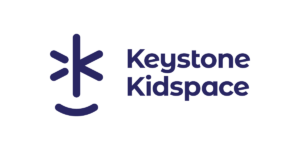
Wrap up the day with hands-on fun at Keystone Kidspace, a vibrant children’s museum designed to spark imagination and play. Explore interactive exhibits, connect with colleagues, and enjoy a relaxed evening of discovery and conversation.
10 Hamilton Avenue
Directions from conference hotel
(12 min walk or 5 min drive)
Parking available across Hamilton Avenue in the large parking lot. Do not park on Albright, as it is a residential alley.
6:00 to 8:00 pm
Silent Auction Open
Auction closes at 8:00 pm. Check out then or on Wednesday.
Wellspan Ballroom
Take the elevator to B1
6:00 to 9:00 pm
Eat & Engage
On your own
Meet up with new friends or reunite with old ones at one of downtown York’s many restaurants, including the Davidson Lobby Bar and Restaurant at the conference hotel.
8:00 am to 12:00 pm
Registration Table Open
Hotel Lobby
Resource Hall Open
Go to the Sponsors and Exhibitors tab on this page to see a list of our 2026 supporters.
Mezzanine
Silent Auction Check Out
At Registration Table
8:00 to 9:30 am
Breakfast
Included with full and Wednesday registrations
Wellspan Ballroom
Take the elevator to B1
9:00 to 10:00 am
Keynote: Chenoa Baker
As we stand at the intersection of environmental collapse and political volatility, small museums and arts organizations have a unique and urgent role to play. This keynote explores how neighborhood based cultural institutions can act as catalysts for care and resistance, providing resource distribution, triage, and culture shifting in communities disproportionately affected by climate change and systemic neglect. Drawing on the frameworks of The Care Manifesto and Nuala Morse’s “Towards a Careful Museology,” this talk proposes a model of the museum not just as a container of objects, but as a container of care—responsive to the social, emotional, and environmental needs of its people.
Two case studies will be featured as models of museums fighting back: First, Pao Arts Center in Boston’s Chinatown, where rising heat, environmental injustice, and community displacement intersect. As a cultural institution embedded in a social service agency, Pao leads creative, place-based responses to climate and community stress—hosting programs for elders during extreme weather, creating public art projects that advocate for safer streets, and embedding artists in long term community planning efforts. Second, The Woodmere Art Museum in Philadelphia is taking legal action after the Trump administration abruptly pulled federal funding for a capital project that would have supported cultural equity and local job creation. By suing to challenge this disinvestment, Woodmere is defending its future and the broader public role of museums in a healthy democracy.
Together, these examples demonstrate that small museums are not passive or peripheral, but powerful, community rooted institutions using care, creativity, and legal action to resist disinvestment, displacement, and disconnection. This keynote invites attendees to imagine how their institutions can serve as places of refuge, resilience, and transformation.
Wellspan Ballroom
Take the elevator to B1
10:15 to 11:15 am
Sessions
Shifting Volunteer Expectations: Adapting to a Changing Social Climate
Dr. Jennifer Rogers and LaShell Martinez
Small museums face shifting volunteer and board dynamics, with fewer long-term commitments and growing accessibility needs. This session explores emerging trends, from short-term and flexible roles to inclusive systems that support youth and volunteers with disabilities. Through discussion and a practical toolkit, participants will gain strategies to adapt expectations and strengthen engagement in today’s evolving landscape.
Wellspan Ballroom
Take the elevator to B1
Resume & Career Coffee Chat
Alli Schell
Bring along a hot beverage and join in a relaxed session focused on your resume, job search, and career questions. This isn’t a formal workshop, but will be shaped more through our candid conversations where you can get honest feedback, strategic advice, and practical next steps.
Whether you’re stuck on your resume, unsure what roles to apply for or trying to make sense of the museum job market, bring your questions. We’ll talk it through and leave you with a clearer plan for your next move.
North/South Meeting Room
Take the elevator to 1
Straddling the Line
Marc R. Baum & Monica Kinner
How to be a serious museum and a cheeky roadside attraction, both at the same time. Real life marketing ideas, promotional considerations, and collection strategies to fill the needs of a stop along the road as well as a chartered historical foundation.
Stewart Company Room
To the left of the hotel reception desk
11:30 am to 12:30 pm
Sessions
Stronger Together: How Museums and DMOs Can Create Authentic Visitor Experiences
Heidi Schlag and Jake Wynn
Today’s travelers seek authentic, place-based experiences rooted in local heritage and culture. This session explores how museums—often overlooked in tourism planning—can collaborate with Destination Marketing Organizations (DMOs) to boost visibility, attract visitors, and deepen community connections. Join heritage tourism consultant Heidi Schlag and Visit Frederick’s Jake Wynn to discover practical strategies for leveraging DMO resources like marketing, PR, and itinerary development to position your museum as a must-visit destination.
North/South Meeting Room
Take the elevator to 1
FireWise in the Northwoods: Resiliency and Preparedness
Jess Edberg
Preparing for natural disasters has taken on more urgency in the past five years due to an increase in severe weather events including drought, which increases wildfire danger. The Dorothy Molter Museum has cultivated partnerships with local, state and federal agencies and organizations to develop a forest management and fuels-reduction property plan as well as emergency response plans. This session will share how creating space for a college forestry/natural resource program resulted in assistance in maintaining and implementing disaster prevention, climate change preparation, education programming and a new revenue generator at the Museum.
Stewart Company Room
To the left of the hotel reception desk
Plenary: Ashley Witherspoon
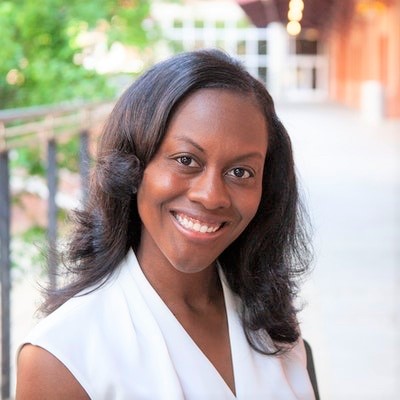
Ashley Witherspoon is a Licensed Clinical Social Worker and the Founder of Hand Made Dreams, a wellness platform dedicated to bringing mental health awareness to everyday spaces. She has partnered with multiple museum spaces, leveraging exhibitions to build mental health awareness, generate conversation, and strengthen community connections. Ashley currently serves on the Delegate Assembly for the National Association of Social Workers- NC and reported as a mental health expert for WRAL-TV, an NBC affiliated television station, providing therapeutic strategies for families during the Covid-19 public health crisis. She has also contributed to local and national publication platforms, including the American Alliance of Museums, Artwork Archive, and Youth Today.
Keynote: Chenoa Baker
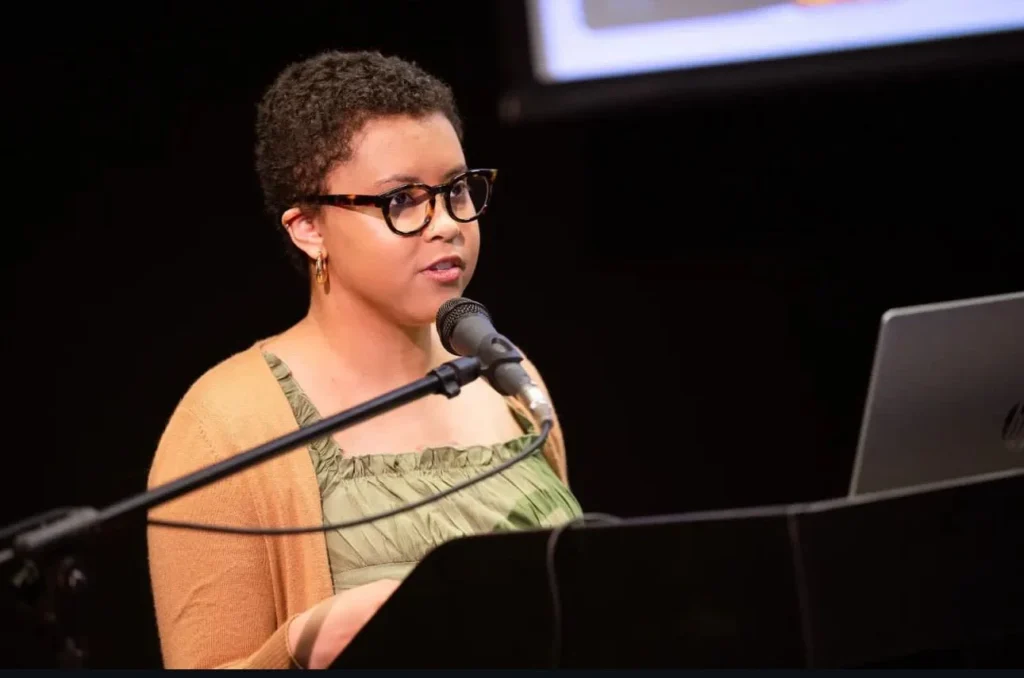
Chenoa Baker is a curator, writer, professor, and descendant of self-emancipators. She has contributed to major exhibitions including Simone Leigh and Simone Leigh: Sovereignty at ICA/Boston, Gio Swaby: Fresh Up at the Peabody Essex Museum, and Touching Roots: Black Ancestral Legacies in the Americas at the MFA/Boston. She has also led curatorial projects at ShowUp, curated Sensory Garden at the New Art Center, and Marie B. Gauthiez: We Dwell in Between at Tephra ICA in Reston, VA. In recognition of her curatorial work, she received the WBUR Maker Award and was featured on NPR’s All Things Considered in 2024. In 2023, she won the AICA Young Art Critics Prize for her writing. She edits for Sixty Inches From Center and writes for The Brooklyn Rail, Material Intelligence, The Observer, and Studio Potter, among others.
Session Speakers:
Mike Adams, Kim Staub, and Michael Madeja: "Letting Go: The Art and Science of Eliminating Programs and Practices That No Longer Work"
Mike Adams serves as Director, Museum and Audience Engagement, at Hagley Museum and Library, and as Board Vice President at the Oscar Hammerstein Museum and Theatre Education Center. Among other roles, was an adjunct professor in the museum studies graduate program at the University of the Arts and, in 2020, was recipient of SMA’s Small Museum Award.
Kim Staub is the Executive Director at Wyck Historic House, Garden, & Farm, a national historic landmark in Northwest Philadelphia. Before joining the team at Wyck, Kim was the Collections & Exhibitions Manager at the Betsy Ross House and served as the Vice-President of Philadelphia’s Historic Neighborhood Consortium.
Michael Madeja (he/him) is the Director of Education at the Independence Seaport Museum in Philadelphia. Before joining the Independence Seaport Museum, Mike worked for and volunteered with various non-profits, including most recently serving as the Head of Education Programs at the American Philosophical Society’s Library & Museum and as the Chair of the Education Committee (EdCom) for the American Alliance of Museums (AAM).
Marc R. Baum and Monica Kinner: "Straddling the Line"
Marc Baum is the President of the International L. Frank Baum & All Things Oz Historical Foundation and Co-Director of the foundation’s All Things Oz Museum located in Chittenango, NY (birthplace of L. Frank Baum). He has been with the organization since 2009 and wrote much of the organizations charter and bylaws.
Monica Kinner is the Vice President of the International L. Frank Baum & All Things Oz Historical Foundation and Co-Director of the foundation’s All Things Oz Museum. She is the collection committee chairperson and is in constant pursuit of the next great museum artifact!
Lauren Canty, Candi Claggett, and Lindsay Hollister: "New Museum in a Changing World: Breaking Ground at the Patterson House and Gardens"
Lauren Canty, the JPPM Curator at Jefferson Patterson Park and Museum, has dedicated her career to the management, care, and understanding of museum collections. She has experience stewarding artifacts at museums of many different types and sizes, including sites within the Smithsonian Institution and National Park Service networks.
Candi Claggett is a museum educator and public historian dedicated to developing dynamic, research-based programming that bridges history, culture, and community. At the Patterson House and Gardens, she designs and leads interpretive experiences that foster learning, dialogue, and deeper connections with the past.
Lindsay Hollister‘s current position as Jefferson Patterson Park and Museum’s first horticulturist has been informed by a lifetime of mentorship with a family landscape business, a Permaculture Design Certification, Chesapeake Bay Landscape Professional training, and the Master Gardener program. At JPPM, her work includes restoring the 1930’s formal gardens at the Patterson Mansion, and managing the park’s 570-acre landscape.
Kayla Doyle, Hannah Gaston, Katherine Quigley, and Michaela Zoquier: "Preventing (Climate) Collections Catastrophes and Other Chaos"
Kayla Doyle has worked at Liberty Hall Museum for the past six years and is now the Curator of Archives. She has a strong background in education, collections management, and exhibition design allowing her to create engaging opportunities for visitors.
Hannah Gaston, the Director of Education at Liberty Hall Museum, is passionate about making historic house museums relevant and compelling to modern audiences and sharing her work with the wider museum community, recently publishing and presenting with the New Jersey Association of Museums, Institute of Museum Ethics, Muse Weekly, and American Association for State and Local History. She holds a B.A. in History from Elmira College and an M.A. in Museum Education from Seton Hall University.
As Curator of Collections at Liberty Hall Museum, Katherine Quigley is responsible for the care of nearly 10,000 items in the museum’s collection. With degrees in Archives and Public History from New York University and History from Boston College, as well as ten years of experience in historical research, interpretation, and collections management, she is committed to balancing the preservation of historic materials with facilitating public access.
Michaela Zoquier is the Education & Outreach Coordinator at Liberty Hall Museum in Union, NJ where her day-to-day focus is running Liberty Hall’s robust Education program while finding joy in teaching history to students, adults, or really, anyone that will listen. She received her Bachelor’s in History from Kean University where she first discovered Liberty Hall and the Museum Education field, and she recently finished a Graduate Certificate in Genocide and Holocaust Studies through Seton Hill University.
Jess Edberg: "FireWise in the Northwoods: Resiliency and Preparedness"
Jess Edberg is the Executive Director of the Dorothy Molter Museum in Ely, Minnesota and serves on the boards of the MN-Alliance for Heritage Response, MN Alliance of Local History Museums and the St. Louis Co MN Historical Society. Jess also plays on the local women’s hockey team, takes advantage of the many amazing regional natural resources, volunteers for the International Wolf Center and travels when she can.
Julie Fether and Scarlett Wirt: "You Are Not Alone: Building and Sustaining a Regional Disaster Response and Recovery Team with the East Broad Top Archives and Special Collections"
Julie Fether is the archivist for the EBT Archives and Special Collections. A former project manager and instructor in higher education, she holds a master’s degree in museum studies and a post-baccalaureate certificate in digital curation from Johns Hopkins University.
Scarlett Wirt is the curator and archives custodian for the Friends of the East Broad Top, and an advisor to the East Broad Top Railroad Archives and Special Collections. Prior to joining the EBT team, Scarlett led the Defense Department’s cryptologic history program, and worked as a National Park Service museum curator and archivist.
Emily Huebner and Mark Neuberger: "Hide and Seekers: Unlocking the Geocaching Audience"
Mark Neuberger is a former president and current member of the Board of Directors of the Maryland Geocaching Society who has partnered with and worked with organizations like the National Park Service and the Heart of the Civil War Heritage Area to create Geotrails and Geotours that has brought geocachers from all of the world to visit the sites of the Mid-Atlantic Region.
Emily Huebner is the Director of Operations and Programs for the Heart of the Civil War Heritage Area, the certified Heritage Area for Maryland’s Carroll, Frederick, and Washington Counties. Before joining the Heritage Area she worked at the Maryland State Archives as a researcher for the Study of the Legacy of Slavery in Maryland and the Maryland 400 project.
Meghn Mann: "Creating an ICE Interaction Policy for Your Institution"
Meghan Mann is Education Coordinator at the Baltimore Museum of Industry.
Kristen Matulewicz: "'We the People...' How One Exhibition Changed an Entire Museum"
Kristen Matulewicz is the Curator of the 1850’s Gothic Revival Mansion and historic gardens, Rockwood Park & Museum in Wilmington, DE. Before curation, she had a 12-year career in Museum Education with a reputation for working with local communities, underserved populations, and practicing artists to create opportunities for accessible learning that saw her awarded the Delaware Art Educators Association’s Educator of the Year in the field of Museums.
Caitlin Playle and Molly Voth: "When Is It Too Much?"
Caitlin Playle is the Curator/Collections Manager and Molly Voth is the Educator at the Antique Boat Museum in Clayton, NY. Caitlin has 11 years of experience in collections and museum event management and Molly has 11 years in teaching and education.
Dr. Jennifer Rogers and LaShell Martinez: "Shifting Volunteer Expectations: Adapting to a Changing Social Climate"
Dr. Jennifer Rogers brings 25+ years of museum and volunteer experience, helping small museums thrive through strategic guidance in collections, programming, exhibitions, and community engagement.
LaShell Martinez has more than a decade of museum volunteer experience and brings a unique perspective to accessibility and engagement. At Kaleidoscope Heritage Focus, she design inclusive, hands-on solutions that help museums connect meaningfully with staff, volunteers, and visitors.
Alli Schell: "Resume & Career Coffee Chat"
Alli Schell is a small museum professional turned museum career coach who helps people navigate the competitive job market. With years of experience working in museums of all sizes, she understands the realities of the field, from burnout to imposter syndrome and is known for her practical strategies tailored to museum jobs. When she’s not leading resume reviews, Alli is advocating for more equitable hiring practices and salary transparency in the field.
Heidi Schlag and Jake Wynn: "Stronger Together: How Museums and DMOs Can Create Authentic Visitor Experiences"
Heidi Schlag is the founder of Culture-Link Communications, where she helps museums and cultural organizations strengthen their marketing through strategic coaching, fractional services, and staff training. With 25 years of experience in heritage tourism, she specializes in connecting museums to broader tourism networks—like DMOs, Main Streets, and Byways—to amplify their reach and impact through smart, cross-sector collaboration.
Jake Wynn is a tourism marketing professional with Visit Frederick, Maryland, and a public historian with a passion for making history accessible and engaging. A former Director of Interpretation at the National Museum of Civil War Medicine, he has spent over a decade bringing American history to life through storytelling, with a focus on Pennsylvania’s anthracite coal region and the Civil War.
Elizabeth Scott Shatto and Scott N. Shatto: "Climate and Changing Approaches to Museum Programming"
Elizabeth (Liz) Shatto is a seasoned museum professional and heritage area executive director, who has devoted her career to assisting communities and cultural heritage organizations with capacity building and problem-solving.
Scott Shatto, now with the University of Maryland Center for Environmental Services, most recently served in NOAA’s Climate Program Office as an Island Resilience Associate with the National Marine Sanctuary Foundation. His museum experience includes roles as an educator, and as a conservation manager with the National Aquarium.
Rebecca Shulman and Elise Petersen-Deitrick: "Collaboration with Colleagues: Museum Educators in Dialogue"
Rebecca Shulman is a museum educator and cultural consultant with over 25 years of experience working in and supporting museums. She spent 15 years working as a museum educator in New York City before becoming the inaugural director of the Peoria PlayHouse Children’s Museum in Peoria, Illinois, and now runs Museum Questions Consulting and works with clients around the country.
Elise Petersen-Deitrick is a museum educator with a little over 12 years of experience in traditional museum education and other forms of community engagement work. Her experience spans across history, science, and art museums in Atlanta, Southern Appalachia, and various regions of Maryland.
Byron Smith and Rick Kriebel: "Interpreting the Civil War in a Small Town: Developing Truthful Programming in a Politically Charged Time"
Byron Smith is the Executive Director & Curator of the Newtown History Center of the Stone House Foundation in Stephens City, VA, a post he has held for over twenty years. He holds a BA from Grove City College, a CMS from Harvard University, and an MA from the University of Richmond.
Rick Kriebel is the Manager of Collections & Programs at the Newtown History Center of the Stone House Foundation in Stephens City, VA, a post he has held for over seven years. He holds a BA from Grove City College and an MA from from The Cooperstown Graduate Program, SUNY Oneonta.
Nora Venezky: "Practical Fundraising Tips for Small Museums"
Nora Venezky holds a Master of Museum Studies from the University of Toronto and has a deep passion for small museums. She has served as Executive Director for the Spencerport Depot & Canal Museum, Greenbrier Historical Society, and Seneca Museum of Waterways and Industry. Currently, she is the Development Director at Homesteads for Hope, a Rochester, NY nonprofit supporting adults with disabilities. In addition, she serves as the President of the Small Museum Association, advocating for the needs of small museums nationwide.
Robert Wills: "Climate Change Contributes to the Establishment of a Museum"
Robert Wills: President of the HRIYPT and Past Commodore of the Hudson River Ice Yacht Club; registered architect and retired GIS Coordinator for Dutchess County, NY.
Mark Wilson: "When the Lighthouse Fell Into the Sea: Sea Level Rise and Historic Sites"
Mark Wilson has been the Lead Historical Interpreter at the Zwaanendael Museum in Lewes, DE, since November 2023 where his duties include creating programming and researching Delaware history. Outside of work, Mark does historical reenacting and volunteers as a volunteer firefighter.
Thank You to Our 2026 Sponsors & Exhibitors!
Your support of the Small Museum Association Conference allows us to continue to offer accessible professional development opportunities to staff and volunteers working in the smallest museums across the country so they can make significant impacts in their communities.
Partner Museums
Exhibitors
Coffee Break Sponsor
Silent Auction Donors
Alexandria Township Historical Society
All Things Oz Museum
America’s Black Holocaust Museum
Antique Boat Museum
Arden Craft Shop Museum
Aurora Regional Fire Museum
Carlene Bermann
Catoctin Furnace Friends
Catoctin Furnace Historical Society
Billye Chabot
cultureNOW
Delaware Agricultural Museum
Elise Petersen-Dietrick, Charm City Quilter
East Broad Top Railroad
“Explore York”/York Businesses
Fire Museum of Maryland
Friends of the East Broad Top
Heart of the Civil War Heritage Area and friends
Historical Society of Baltimore County
Hollinger Metal Edge
Homesteads for Hope
Janice Klein
The Latvian Museum
Liberty Hall Museum & Arboretum
Ronald Marvin, Jr.
Alaina McNaughton
Modern Museum Education
Montauk Historical Society
Nicandri Nature Center
Poplar Hill Mansion
PrimeSite Web
ReFocus Portrait Studio
Richmond Kickers
Alli Schell
Seward House Museum
St. Lawrence County Center for History & Culture
St. Mary’s County Museum Division
Nora Venezky
Visit Rochester
Wegmans
Crystal Wimer
The Yorktowne Hotel
Your Museum Career Coach
The Yorktowne Hotel has accessible and pet-friendly rooms and ADA accessible parking.
On the 1st floor, by the North/South Meeting Room and Barnhart Tea Room, there are two single, gender-neutral restrooms.
The Ballroom level and rear/entry level of the hotel have gender specific restrooms.

